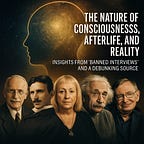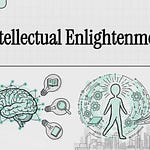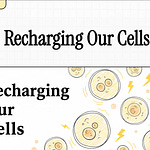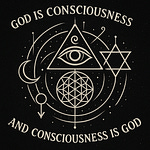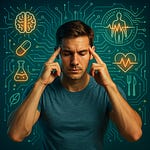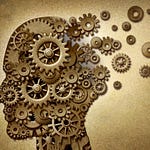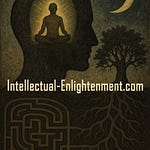This podcast is designed to help you review and deepen your understanding of the provided "banned interview" excerpts featuring Albert Einstein, Sylvia Browne, Nikola Tesla, Carl Jung, and Stephen Hawking, along with the debunking article regarding the Einstein interview.
I. Core Concepts and Themes
This collection of interviews explores various perspectives on life, death, consciousness, and the nature of reality. Key themes include:
The Nature of Consciousness: Is consciousness a product of the brain, or something more fundamental and independent?
Life After Death: Do individuals survive physical death, and if so, in what form?
Reincarnation/Transformation: Is death a final end, or a transition leading to new beginnings or cycles of existence?
The Role of Suffering: Why does suffering exist, and what purpose does it serve in the spiritual or conscious journey?
The Interconnectedness of Everything: The idea that all matter, energy, and consciousness are part of a unified field or "ocean."
The Secrecy and Danger of Truth: Why these profound insights are often "banned," suppressed, or feared by established institutions (science, religion, politics).
The Nature of God/Higher Power: Conceptions of a universal intelligence, architect, or ultimate source of reality.
The Evolution of Consciousness: The idea that consciousness is not static but grows and ascends through experience.
The Importance of How We Live: The emphasis on actions, choices, and love in shaping our experience in this life and beyond.
Myth vs. Reality: The importance of critically evaluating sensational claims, particularly regarding historical figures.
II. Key Figures and Their Perspectives
A. Albert Einstein (Banned Interview 1 & 2):
Core Claim: Consciousness does not cease with death; it transforms. The body is a temporary form, consciousness returns to the "ocean" (source).
Proof/Reasoning: Examined mathematical structures of time and space, unified field theory, quantum entanglement (Einstein-Podolsky-Rosen paradox). Consciousness is non-local and primary, the brain is an antenna. Universe exists because someone perceives it.
God: Not a person, but the "ocean itself," the merging consciousness of all beings.
Suffering: A school for spiritual growth; strengthens the spirit.
Reincarnation: A choice for consciousness to return and learn/grow. Liberation is dissolving into the ocean of light.
Why silence? Truth is too simple and dangerous; scientists fear ridicule, religion fears losing power, politicians fear losing control. Humanity not ready.
Later interview (Banned Interview 2): Adds that humans were "created by a higher power" with intelligent design, not random. Consciousness is a foundation, not a byproduct. God is "logic, beauty, order, energy beyond time." Love is the "true grand equation."
B. Sylvia Browne (Banned Interview):
Core Claim: Experienced a transition beyond her body, witnessed "trapped souls" and higher entities.
Nature of Soul/Afterlife: Soul is essence, not a tool or antenna. Hell is a state/vibration, not a place. No punishment, only consequences (karma as a mirror). All souls return for completion.
Trapped Souls: Stuck in loops of pain/repetition due to inability to let go (e.g., self-blame, not understanding they're dead).
Fear: The main barrier to evolution.
Living Authentically: Emphasizes connecting to inner truth, not external validation or fame.
After Death Experience: Arrives in a "reflection" of how one lived; self-perception and choices determine the experience. Love meets love.
Purpose of Life: Not to be perfect, but to be real, feel, grow, make mistakes, remember.
C. Nikola Tesla (Banned Interview):
Core Claim: "Believe no, I know" regarding the soul and life after death. Everything is vibrations, which are consciousness/memory/soul.
Five Proofs:Out-of-body memories: Consciousness can separate from the body.
Electrical memory of objects: Thoughts/emotions leave traces in matter; space remembers.
Music of light: Living beings emit non-physical sound/vibrations that remain after death.
Connection between souls: Synchronous experiences (e.g., fainting when a friend dies) prove interconnectedness. Death doesn't sever threads.
Dreams that come true/conversations with deceased: A bridge between worlds.
Purpose of Life: To learn, suffer, love; a school/battlefield, not punishment. To remember who we are.
Death: A change in key, not a pause. A mirror for self-judgment.
The Ocean of Energy: Post-death, the soul returns to this ocean, remaining itself but "cleaner."
Interference: "They" (those who fear truth/rule through fear) destroyed his device for catching soul transition.
Stuck Souls: Souls can cling to fear/power/desire, drawn to the living (ghosts). Love/compassion/prayer can free them.
"Echo Catcher" Device: A prototype for detecting energetic imprint of consciousness after death.
D. Carl Jung (Banned Interview):
Core Claim: The soul does not die; it uses the body like a car. Death is a change of scenery.
Proof/Reasoning: Studied psyche, archetypes, dreams, myths; personal near-death experience in 1944 where he experienced timelessness, light, and love.
Reincarnation: Believes in "memory and repetition"; souls return with a mission until they remember who they are.
Purpose of Life: A school for the soul to learn what it means to be human, to grow through experience. Mistakes/losses are not punishment but experience/reminders.
Great Souls: Don't suffer but observe; suffering belongs to the ego/personality.
Carriers of Light: Souls who come in dark times to change space and be beacons.
Darkness/Stuck Souls: Souls who refuse to hear can close in, lose form, wander between worlds as "unfinished stories." Help them with memory, forgiveness, light, unconditional love.
Beyond Death: Silence, then light, then true self without fear/past/future; meeting loved ones in feelings/vibration. Possible to touch this state briefly while alive.
Why silence? Hard to speak to those who fear the word "death" or waste time. Truth is a whisper, demands silence.
Truth: Is within, an intuition, doesn't demand proof but silence.
Final Message: "Did you live with love?" Love is the only thing that truly matters and remains.
E. Stephen Hawking (Banned Interview):
Core Claim: Consciousness is not destroyed; it's an informational structure (quantum information) distributed across space and time.
Proof/Reasoning: Information in a black hole is not destroyed. Worked on "cognitive trace program" with physicists/neurobiologists. Observed "bursts of quantum activity" after patient deaths, "quantum echo" of memory/feelings.
Black Holes & Consciousness: Black holes transform information; consciousness follows similar path.
"Informational Soul": Consciousness is an informational soul, part of quantum reality.
Suppression: Conclusions too dangerous; could be used for good or control. Dr. Mark Uler (project lead) disappeared, project classified.
Encoded Message: "Consciousness is not a function, it is a path."
Quantum Memory Field: Post-death, consciousness transitions here; patterns of personality exist as waves, can interact.
Reincarnation: "Compatible patterns" continue, picked up by new carriers (children with unusual memories/abilities). Natural selection of consciousness.
Purpose: Compatible consciousnesses return during crises to help humanity.
Hawking's Signature Quote: "The fear of death is the fear of losing form but information does not disappear we do not die we transform."
F. "Einstein's Afterlife: Debunking the Banned Interview Myth":
Core Argument: The "banned Einstein interview" is a modern myth/fictional narrative, not a historical document. No credible evidence exists in Einstein's or Gödel's archives.
Einstein's Actual Views: Consistently rejected personal immortality and afterlife as "naive" or product of "egoistic desires." Believed consciousness ceases with physical death; only ethical legacy remains.
Poetic Language Misinterpretation: His quote about "past, present, and future" being an "illusion" referred to the "block universe" in relativity theory (all moments exist simultaneously in spacetime), not personal consciousness survival.
Einstein and Gödel: Close friends with daily conversations. Gödel did believe in God and afterlife (even developed an ontological proof), but Einstein was a religious skeptic and did not adopt Gödel's views. No "secret confession" from Gödel.
No Suppressed Interview: Einstein was a widely documented public figure; no authority could "ban" his interviews. His health was fragile in final years, rarely gave interviews. His last known essay reaffirmed his impersonal religious outlook.
Misuse of Physics: Modern physics concepts (relativity, quantum entanglement) are often misused to fuel mystical narratives.
Relativity: Block universe doesn't mean consciousness experiences all times; information disperses. No "relativistic afterlife" of an aware mind.
Quantum Entanglement: Property of small particles, doesn't imply soul. No reputable evidence for human consciousness being quantum-entangled to preserve identity.
Orch-OR Theory (Penrose/Hameroff): Controversial, speculative model of quantum consciousness in brain, not widely accepted. Not attributable to Einstein.
Conclusion: Mainstream science and Einstein himself maintain consciousness ceases with brain death. The "banned interview" is a fabrication that uses Einstein's authority for mystical claims.
III. Quiz: Short Answer Questions
Answer each question in 2-3 sentences.
According to the "banned" Albert Einstein interview (first one provided), how does he describe the continuation of consciousness after death?
What is Sylvia Browne's understanding of "hell," and how does it differ from a traditional religious view?
Name two of Nikola Tesla's "five proofs" for the existence of the soul and life after death.
Based on the "banned" Carl Jung interview, what is the soul's relationship to the body, and what is the purpose of life?
How does the "banned" Stephen Hawking interview propose that consciousness persists after death, and what concept of modern physics does it link this to?
According to the debunking article, what was Albert Einstein's actual view on personal immortality?
How does the debunking article explain the famous Einstein quote about the "stubbornly persistent illusion" of time, and why it doesn't support the idea of an afterlife?
What is the core difference between Kurt Gödel's personal beliefs and Albert Einstein's, as highlighted by the debunking article?
In the second "banned" Einstein interview, what does he suggest is the "true grand equation" that the cosmos obeys?
All the "banned" interviews discuss why these profound truths are often suppressed or not widely known. What common reasons are given across these interviews for this suppression?
IV. Essay Format Questions
Suggest five essay format questions, but do not supply answers.
Compare and contrast the scientific and philosophical arguments presented by the "banned" Albert Einstein interview and the "banned" Stephen Hawking interview regarding the nature of consciousness and its potential survival after death. Discuss the similarities in their reasoning (e.g., information/energy conservation, quantum physics) and any notable differences in their conceptualization of the "soul" or post-death experience.
Analyze the role of personal experience and intuition in the "banned" interviews with Sylvia Browne and Carl Jung. How do their individual journeys and perceived direct experiences of the "beyond" shape their understanding of the afterlife and the soul, and how do they differ from purely scientific or theoretical approaches?
The concept of "suffering" and its purpose is touched upon in several "banned" interviews (Einstein, Jung, Tesla). Discuss how each of these figures interprets the role of suffering in the context of spiritual or conscious evolution, and compare their perspectives on whether it is a punishment, a lesson, or something else entirely.
Critically evaluate the claims made in the "banned" interviews against the information presented in "Einstein's Afterlife: Debunking the Banned Interview Myth." Discuss the methods used by the debunking article to challenge the authenticity and scientific accuracy of the "banned" Einstein interview, and reflect on the broader implications of distinguishing between scientific fact, speculation, and fictional narratives in understanding complex metaphysical topics.
Explore the common thread of "truth suppression" or why these profound insights are kept secret, as discussed by Einstein, Tesla, and Hawking in their "banned" interviews. What are the perceived dangers or societal implications if this knowledge were widely accepted, and how do these interviews suggest humanity might eventually overcome this suppression?
V. Glossary of Key Terms
Akasha/Akashic Records (Tesla, Einstein): A concept in esoteric traditions referring to a universal energetic field or library that records all thoughts, emotions, and events, functioning as a memory of the universe.
Archetypes (Jung): Universal, archaic patterns and images that derive from the collective unconscious and are the psychic counterpart of instinct.
Block Universe Theory (Debunking Einstein): A concept in physics, particularly associated with Einstein's theory of relativity, where time is a dimension like space, and all moments (past, present, and future) exist simultaneously and are equally real.
Cognitive Trace Program/Hypothesis (Hawking): A hypothetical scientific program or theory suggesting that consciousness, as an informational structure, can leave measurable traces or quantum activity after the death of the brain.
Compatible Consciousnesses (Hawking): A term referring to consciousnesses that, through an unknown mechanism, preserve memories and abilities from past lives and return during periods of crisis to help humanity.
Consciousness (All): The state of being aware of one's own existence and surroundings; in these texts, often debated as being either a product of the brain or a more fundamental, non-local aspect of reality.
Consequences/Karma (Browne, Tesla): The idea that actions (thoughts, words, deeds) have effects that reflect back on the individual, serving as a mirror for learning rather than a punitive judgment.
Double Slit Paradox (Einstein): A quantum mechanics experiment demonstrating that particles can behave as both waves and particles, and that the act of observation influences their state, hinting at consciousness shaping reality.
Echo Catcher (Tesla): A hypothetical device created by Tesla, capable of detecting the energetic imprint of consciousness after death, described as a small metal cylinder.
Ego/Personality (Jung): The part of the self that is conscious, rational, and in contact with external reality; often seen as distinct from the deeper, eternal soul.
Entanglement/Quantum Entanglement (Einstein, Tesla, Hawking, Debunking Einstein): A phenomenon in quantum mechanics where two or more particles become linked in such a way that they share the same fate, regardless of distance, leading to the idea of non-local connections.
Ether (Tesla): A subtle, pervasive medium or field through which energy and information, including consciousness or soul-fields, are believed to transmit or exist.
Free Will (Einstein, Jung, Banned Einstein 2): The capacity of an individual to make choices that are not predetermined, seen as a high law or essential to the "game" of life.
Higher Power/Architect (Banned Einstein 2): A concept of God not as a personal deity, but as an intelligent design, logic, beauty, and order behind the universe's creation and laws.
Informational Soul (Hawking): Stephen Hawking's hypothetical concept that the soul is not a separate entity but an information structure that transitions into another state after death, obeying laws of conservation.
Liberation (Einstein, Jung): A state achieved when consciousness or the soul completes its cycle of learning and growth, transcending the need for further reincarnation and merging with the ultimate source.
Non-local (Einstein, Debunking Einstein): A term indicating that something is not confined to a specific point in space; applied to consciousness to suggest it exists beyond the physical brain.
Orch-OR Theory (Debunking Einstein): A controversial theory by Roger Penrose and Stuart Hameroff proposing that consciousness arises from quantum processes occurring in microtubules within brain neurons.
Primary (Einstein): The idea that consciousness is fundamental and precedes matter, rather than being a byproduct of the brain or physical processes.
Quantum Memory Field (Hawking): A hypothetical state where patterns of personality (consciousness) do not disappear after death but continue to exist in the form of waves or interactive patterns.
Reincarnation/Return (Jung, Einstein, Browne, Tesla, Hawking): The belief that the soul or consciousness, after death, begins a new life in a new body, often for continued learning or to complete a mission.
Spacetime (Einstein, Debunking Einstein): A four-dimensional continuum in physics that combines the three dimensions of space and the one dimension of time into a single entity.
Suffering (Einstein, Jung, Tesla): Viewed not as punishment, but as a necessary catalyst for growth, learning, and the strengthening of the soul or spirit.
Transformation (Einstein, Hawking): The idea that death is not annihilation but a change in the form or state of consciousness or energy.
Trapped Souls (Browne, Tesla, Jung): Souls that are unable to move beyond the earthly plane after death, often due to unresolved issues, negative emotions, or a lack of understanding of their true state.
Unified Field Theory (Einstein): Einstein's unfinished quest to find a single theoretical framework that could describe all fundamental forces and particles in the universe, which he allegedly extended to include consciousness.

